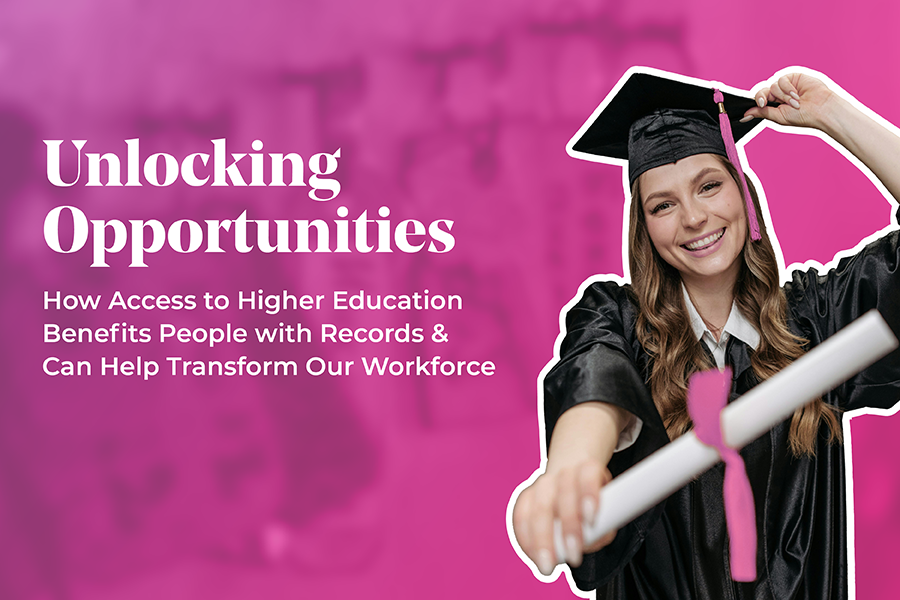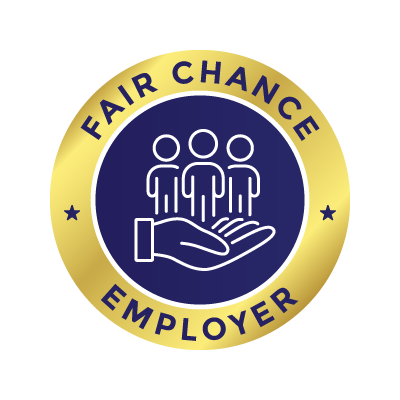Higher education has long been a pathway to opportunity, but for many individuals with criminal records, that path has been blocked. The barriers faced by this population not only limit their personal growth but also deprive our colleges and universities of diverse perspectives and valuable skills.
However, things are starting to change. As more employers move to embrace fair chance hiring policies and provide support for record clearance, institutions can unlock the untapped potential of their students while making a meaningful impact on the lives of students and their communities.
Here are a few key reasons why helping people with records access education and record clearance services is a win for all:
Expanding the Student Pool
With an estimated 70-100 million Americans having some type of criminal record, this population represents a significant and often overlooked source of potential students. By considering applicants based on their merits rather than their past mistakes, colleges and universities can access a larger, more diverse pool of students.
Improving Student Outcomes
Education has been shown to be one of the most effective interventions for reducing recidivism rates. When individuals with criminal records are given the opportunity to pursue higher education, they are far less likely to reoffend. This not only transforms the lives of students, but also strengthens communities by breaking the cycle of incarceration and promoting social mobility.
Demonstrating Commitment to Equity and Inclusion
In a time when diversity, equity, and inclusion are top priorities for many colleges and universities, fair chance admissions sends a powerful message about an institution's values. By proactively supporting individuals with records, higher ed leaders can show their dedication to creating a more just and equitable society - a draw for students, faculty, and staff who seek to be part of that mission.
Addressing Challenges
The path to a fair chance in higher education and beyond is not without challenges. There are considerations that need to be made about safety, admission policies, and whether and how a student’s criminal record may impact career-line or professional licensing opportunities. But the case for creating a pathway is clear. By welcoming students with records on campuses, educating them on a record’s impacts on their education and future job prospects, and providing support for record clearance where possible, colleges and universities can unlock new opportunities for students, strengthen their campuses, and drive positive change in their communities.
Want to Unlock the Potential of Record Clearance?
We are here to help. Fill out the form below and we’ll get in touch with you to discuss your pain points and help your institution thrive by implementing policies that can help you safely admit and support students struggling with a criminal record.




